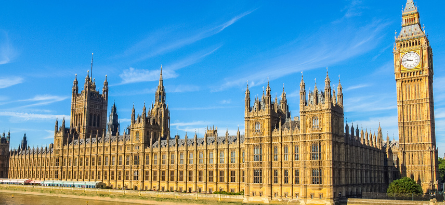Is lying about where you’ve been on holiday capable of amounting to fraud?
15/02/2021
Health Protection Regulations
On 12 February, the Health Protection (Coronavirus, International Travel) (England) (Amendment) (No. 7) Regulations 2021 were published. These regulations amend the Health Protection (Coronavirus, International Travel) (England) Regulations 2020 to implement the government’s hotel quarantine plans.
Arguably the most eye-catching feature of Matt Hancock’s announcement was his statement in Parliament that travellers who lie about which countries they have visited will face a prison sentence of up to 10 years. This immediately led to speculation about whether the government believes that such conduct is already caught by one or more existing offences or whether it intended to create an entirely new offence. Suggestions for existing offences that might have fitted the bill included knowingly making a false statement otherwise than on oath contrary to section 5 of the Perjury Act 1911, forgery and/or kindred offences as proscribed by the Forgery and Counterfeiting Act 1981, and fraud as proscribed by the Fraud Act 2006 (the first two currently carry a maximum sentence of two years, but it would be a simple exercise for the government to increase the maximum to 10).
It can be inferred from the regulations as amended that the government intends to make use of the existing offence of fraud. Regulation 3 obliges travellers arriving in England to identify their country of departure and any other countries that they have recently visited. Regulation 10 was originally drafted so as to prevent this information being used against travellers in criminal prosecutions subject to two exceptions: prosecutions for offences under the regulations themselves, and for the Perjury Act offence referred to above. The new regulations add a further exception for fraud prosecutions.
We consider, however, that relying on the offence of fraud to plug the gap is problematic.
The Fraud Act 2006 created one offence of fraud that can be committed in three different ways: by false representation, by failure to disclose information when under a legal duty to do so, and by abuse of position. Common to all three is the requirement for the prosecution to prove that the defendant acted dishonestly and intended by their conduct to make a gain for themselves or another, or to put another at a loss or risk of loss. Section 5 of the Act provides that a gain includes a gain by keeping what one has but also, crucially, that only a gain or loss of money or other property counts. Fraud in England and Wales is an economic crime (the position is different in Scotland, where the common law offence of fraud also encompasses non-financial gain).
Because the regulations empower the Secretary of State to charge travellers for their accommodation, transport and testing (paragraph 9 of Schedule B1A), the government seems to have assumed that it will be straightforward to prove that travellers who give false information will do so intending to make a gain for themselves by keeping the money that they would otherwise have had to pay to the government.
At this point, we need to say a few quick words about criminal intention generally. Firstly, intention is not to be confused with motive – a suicide bomber is not absolved of murder because they believe themselves to be furthering a religious or political cause. Secondly, the law has developed a concept known as “oblique intention”, which is to say that a jury is entitled to infer that a defendant intended a particular consequence if it was a virtually certain consequence of their actions and the defendant realised this. Applying those principles to the present context, the traveller who lies in an attempt to evade the quarantine requirements because they truly believe that COVID-19 doesn’t exist would be in no better position than the traveller who does so to avoid paying the charge.
However, assuming that the charge the government will levy (£1,750 for one adult) is not intended to generate a surplus and is only to cover the costs of the services provided (accommodation, transport and testing), can it truly be said that a person who intends to avoid both the charge and the services intends to make a pecuniary gain? We venture to suggest that most people would think that a person who cancels a contract for services before the service is provided has made neither a gain nor a loss; it seems at least arguable that the analogy holds here. And what of the lying traveller who posts the government a cheque for £1,750 on his arrival in England? These difficulties are a consequence of attempting to fit the square peg of evading quarantine requirements into the round hole of economic crime.






